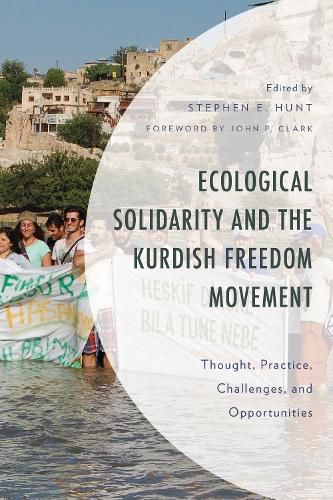Readings Newsletter
Become a Readings Member to make your shopping experience even easier.
Sign in or sign up for free!
You’re not far away from qualifying for FREE standard shipping within Australia
You’ve qualified for FREE standard shipping within Australia
The cart is loading…






Ecological Solidarity and the Kurdish Freedom Movement: Thought, Practice, Challenges, and Opportunities is a pioneering text that examines the ideas about social ecology and communalism behind the evolving political structures in the Kurdish region. The collection evaluates practical green projects, including the Mesopotamian Ecology Movement, Jinwar women's eco-village, food sovereignty in a solidarity economy, environmental defenders in Iranian Kurdistan, and Make Rojava Green Again. Contributors also critically reflect on such contested themes as Alevi nature beliefs, anti-dam demonstrations, human-rights law and climate change, the Gezi Park protests, and forest fires. Throughout this volume, the contributors consider the formidable challenges to the Kurdish initiatives, such as state repression, damaged infrastructure, and oil dependency. Nevertheless, contributors assert that the West has much to learn from the Kurdish ecological paradigm, which offers insight into social movement debates about development and decolonization.
$9.00 standard shipping within Australia
FREE standard shipping within Australia for orders over $100.00
Express & International shipping calculated at checkout
Ecological Solidarity and the Kurdish Freedom Movement: Thought, Practice, Challenges, and Opportunities is a pioneering text that examines the ideas about social ecology and communalism behind the evolving political structures in the Kurdish region. The collection evaluates practical green projects, including the Mesopotamian Ecology Movement, Jinwar women's eco-village, food sovereignty in a solidarity economy, environmental defenders in Iranian Kurdistan, and Make Rojava Green Again. Contributors also critically reflect on such contested themes as Alevi nature beliefs, anti-dam demonstrations, human-rights law and climate change, the Gezi Park protests, and forest fires. Throughout this volume, the contributors consider the formidable challenges to the Kurdish initiatives, such as state repression, damaged infrastructure, and oil dependency. Nevertheless, contributors assert that the West has much to learn from the Kurdish ecological paradigm, which offers insight into social movement debates about development and decolonization.